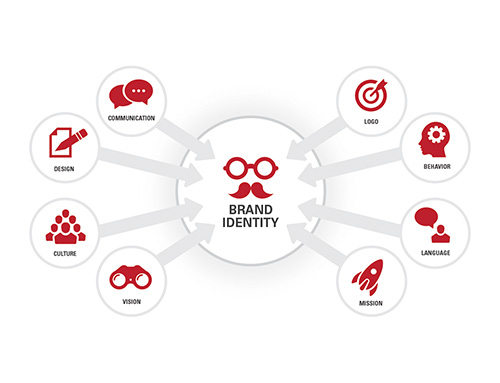The COVID-19 pandemic, burgeoning unemployment, a drop in manufacturing production and of course spending has certainly raised the discussion regarding marketing during a recession.

Problems associated with the pandemic notwithstanding, no one wants the added pressure of marketing in a recession. Typically, the survival playbook is activated, a wait-and-see attitude takes over and, and as we all know, marketing activities and budgets are first to be cut. Yet, marketers must continue to act in the best interests of their companies. For savvy companies, a downturn provides opportunities to grab market share by appealing to prospective customers who are also looking for opportunities to improve their ROI.
Peter Field, a B2B Research Fellow, recently posted an in-depth piece on LinkedIn’s Marketing Solutions Blog – Advertising in a Recession – Long, Short, or Dark, in which he has examined historical advertising spending during economic downturns.
He notes: “It (this recession) will probably be different to ‘normal’ recessions, but many of the lessons about advertising from previous recessions still apply.
The biggest lesson is to continue to invest in brand advertising (marketing) if resources are available but there is a diminished role for short-term sales activation in the current crisis due to consumer demand patterns, with a few exceptions. Data from the 2008 recession shows the value of investing in a brand.
Field concludes: “The coming months will test everyone – we are in unchartered territory. But this was much the same in 2008 and it was the brands that held their nerve – and share of voice – that bounced back strongly when recovery came”
Marketing in a recession typically plays out over four scenarios – with very different outcomes for each:
- Your top competitor (market leader) continues to market during a downturn and you do not. You’d better open your survival playbook because the competition will have its sights set on your customers.
- You sustain, or boost marketing efforts and your top competitor does not. You create new opportunities to steal market share from your competitor(s).
- You and your top competitor do nothing. The market continues as is with the market leader growing faster than you and continuing to gain market share at your expense.
- You and your top competitor carry out marketing activities. You gain market share from smaller competitors. Your main competitor grows at a slightly faster rate – but you survive.
Benefits are Measurable. FedEx, People magazine and iPod were all successfully launched in recession years. For decades, studies have demonstrated those that invest during recessions are rewarded. For example, the Harvard Business Review released a study in 1927 saying the biggest sales increases during the 1923 recession were earned by companies who marketed the most. Those results were reinforced almost 50 years later when McGraw-Hill Research found companies that marketed in the 1981-1982 recession saw a 275 percent increase in sales over the following three years.
Win Them with Value. Deciding to continue marketing during a downturn is not enough. You must continue bring added value to both prospects and customers alike who are scrutinizing costs in all quarters. And watch that strategy of lower pricing, which only begins the slippery slope to more serious problems such as commoditizing your busines.
In an economic downturn, your customers need forward-thinking, cost-effective solutions more than ever. Clearly defined, strategically driven communications that address your customers’ greatest needs will be welcomed.
Don’t Let a Tight Budget Stop You. Budgets get cut. Live with the marketing budget handed to you. Get creative! Reallocate and leverage lower-cost, higher-yield communications to assure a voice before your customers.
Focus on the web:
- Make sure you can be found. Revisit or establish your search engine optimization strategy. Make sure your website is being appropriately crawled by the main search engines.
- Complement SEO with a search engine marketing campaign that will display your ad when relevant keywords are typed into a search engine.
Keep news flowing:
- Find out what’s new or innovative in your company and continue to develop editorial opportunities.
- Incorporate your keywords into news release copy and headlines, which will further enhance your search engine rankings.
Stay active in social media:
- Post more often and center content on the value that you are delivering.
- Provide insights and answers to prevailing issue facing business.
Maintain thought leadership:
- Research industry events (mostly virtual today) that draw your customers and work with the conference directors to develop speaking opportunities, webinar presentation and more.
- Contribute or pursue articles in trade magazines on topics in which your company specializes.
Stay in contact and be top-of-mind:
- Use email or e-letters to routinely provide customers and prospect news and insights from your organization.
Make sure your current customers are happy:
- Keep your current customers by setting up more virtual and face-to-face meetings to offer support, answers to problems and to detect any reservations about your service before it’s too late.
While your competitors head for the bunker, consider the opportunities that marketing in a recession can offer as far as raising your company’s profile, awareness and ROI.
For recession-proof marketing strategies, contact The Quell Group.





